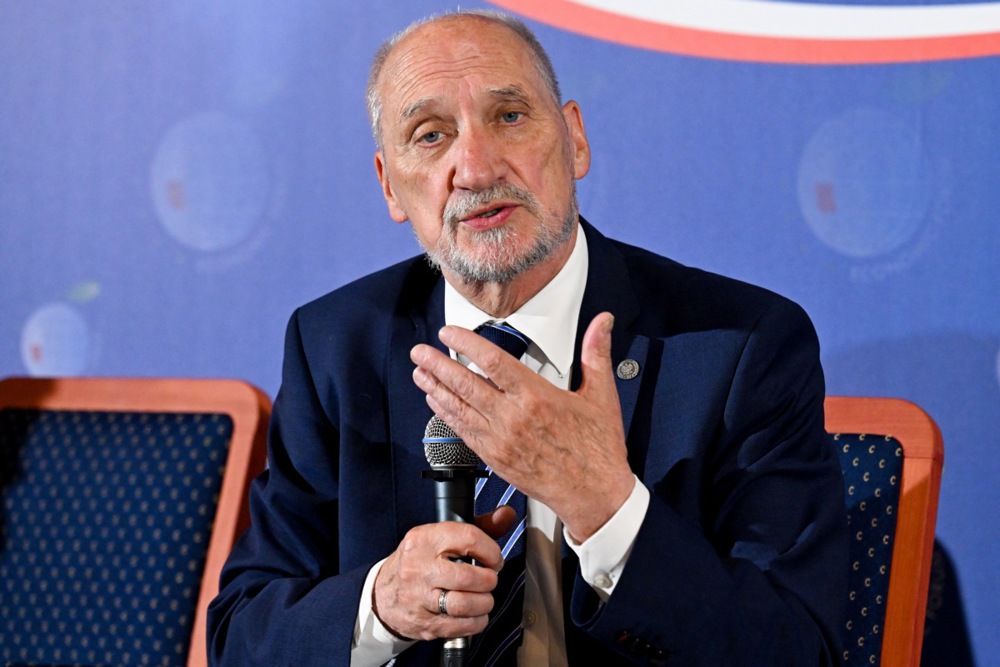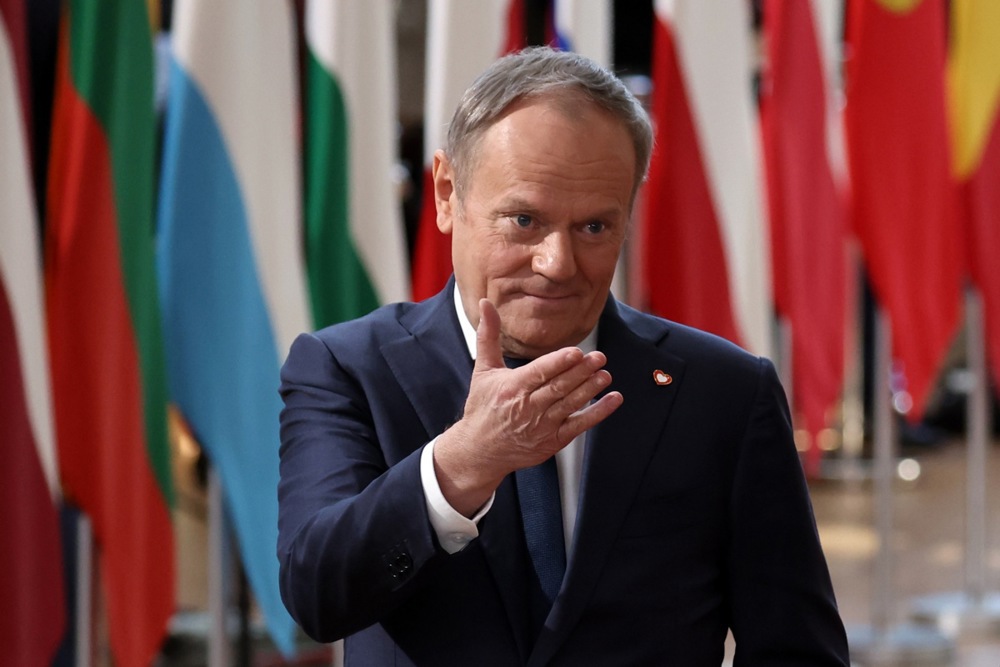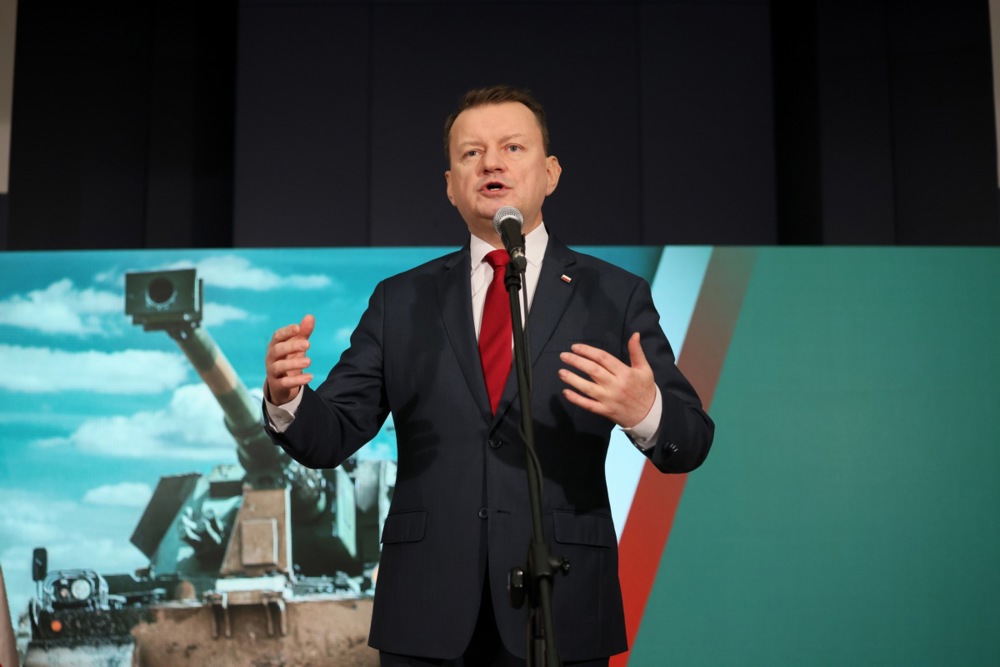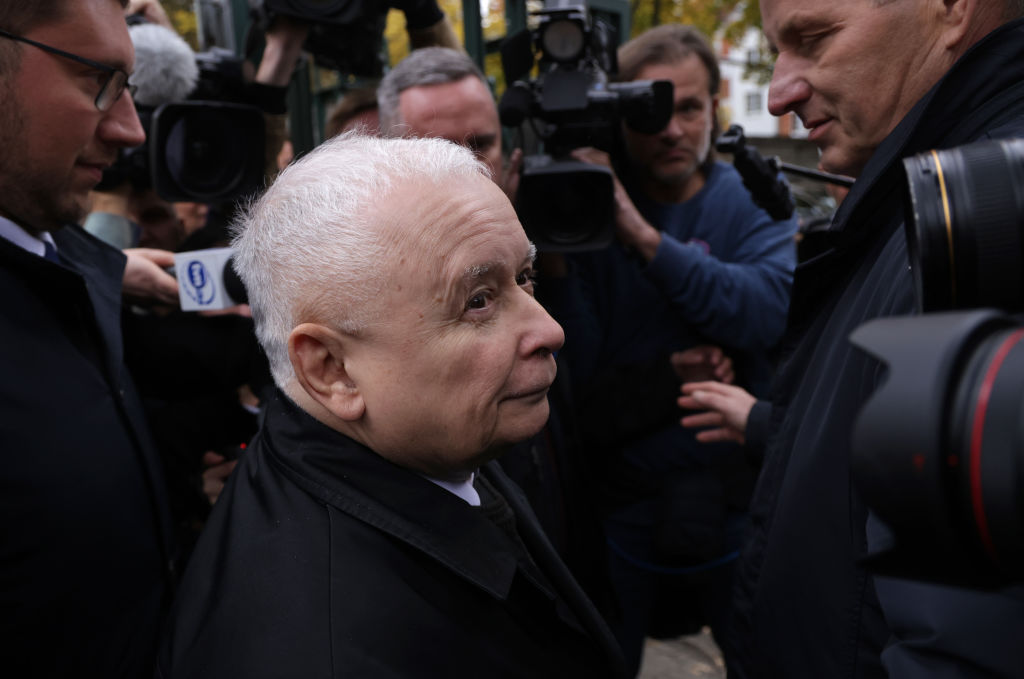The new Polish President’s national security adviser and a former defence minister could face 10 years jail after being indicted on charges of declassifying military plans “for personal gain”.
Prosecutors controlled by Poland’s centre-left government led by Prime Minister Donald Tusk have charged the current head of the National Security Bureau (BBN) Sławomir Cenckiewicz and former defence minister Mariusz Błaszczak in the last Conservative (PiS) government (2015-2023).
The charges related to the declassifying of military plans of a previous Tusk government (2007-2015). They involved a scheme not to defend the whole of Polish territory in event of a Russian invasion and were revealed during the parliamentary election campaign in 2023.
The documents, released in the summer of 2023 by Błaszczak, showed that under the previous Tusk government, Poland assumed that if invaded from the east by Russia it would defend itself along the route of the river Vistula, thereby giving up a large part of its territory without a fight.
The PiS government (2015-2023) later changed that military doctrine, thereby rendering plans of the previous government out of date. The fact that the plans were no longer valid allowed their release.
Announcing the pair’s indictments on August 22, the prosecutors argued that by releasing the documents the two “acted to the detriment of the public interest and caused exceptionally serious damage to the Republic of Poland”.
They said that Błaszczak had sought to “achieve personal gain” through “the use of excerpts of strategic-level operational planning documents taken out of context in order to publicly discredit his political opponents and thereby promote his political party”.
Cenckiewicz is also being indicted for having allegedly acted to achieve personal gain by using the top secret material in a State television documentary Reset. The 2023 programme claimed a previous Tusk government (2007-2015) had been willing to give way to Russia to improve relations.
Prosecutors said Błaszczak’s decision to declassify a top-secret document had negative consequences for “the internal and external security of the Republic of Poland, political stability, public trust and Poland’s position on the international stage”.
Foreign minister Radosław Sikorski, a member of Tusk’s Civic Coalition party, said the charges and the 10 year prison term they carried should “be a warning to all politicians that none should dare to play with Poland’s security for the sake of party gain”.
Cenckiewicz, who in 2023 was in charge of military archives and accused of allegedly facilitating the release of the documents, has already been denied security clearance by the government despite the fact he was appointed as national security adviser and head of the BBN by the PiS-aligned President Karol Nawrocki.
He won a court appeal in June against a government decision that removed his access to classified information. Tusk’s office, though, then lodged a complaint in a higher court asking for the original decision to be upheld and his security clearance is still denied.
Cenckiewicz claimed that the indictment was “purely political and driven by revenge” for revealing how a previous Tusk government planned to give up the east of Poland. He added that he was “pleased” he would now be able “to defend myself in court”.
Błaszczak also dismissed the charges as being politically motivated.
“This is not an indictment but an act of revenge by Donald Tusk against me that has been brought before the court,” he wrote on X. “This is the price I am paying for revealing the plans of the first Tusk government to surrender almost half of Poland without a fight.”
The government has issued a whole raft of indictments against former PiS government officials for alleged abuses of power with several losing their parliamentary immunity. None of these cases, though, has yet been tried in a court of law.
The pursuit of Cenckiewicz by the Tusk administration marked for many another example of the bad blood and tension between the Prime Minister and President Nawrocki.
In the less than three weeks that Nawrocki has been in office, he and the government have clashed over issues including foreign policy, energy policy and the rule of law.





